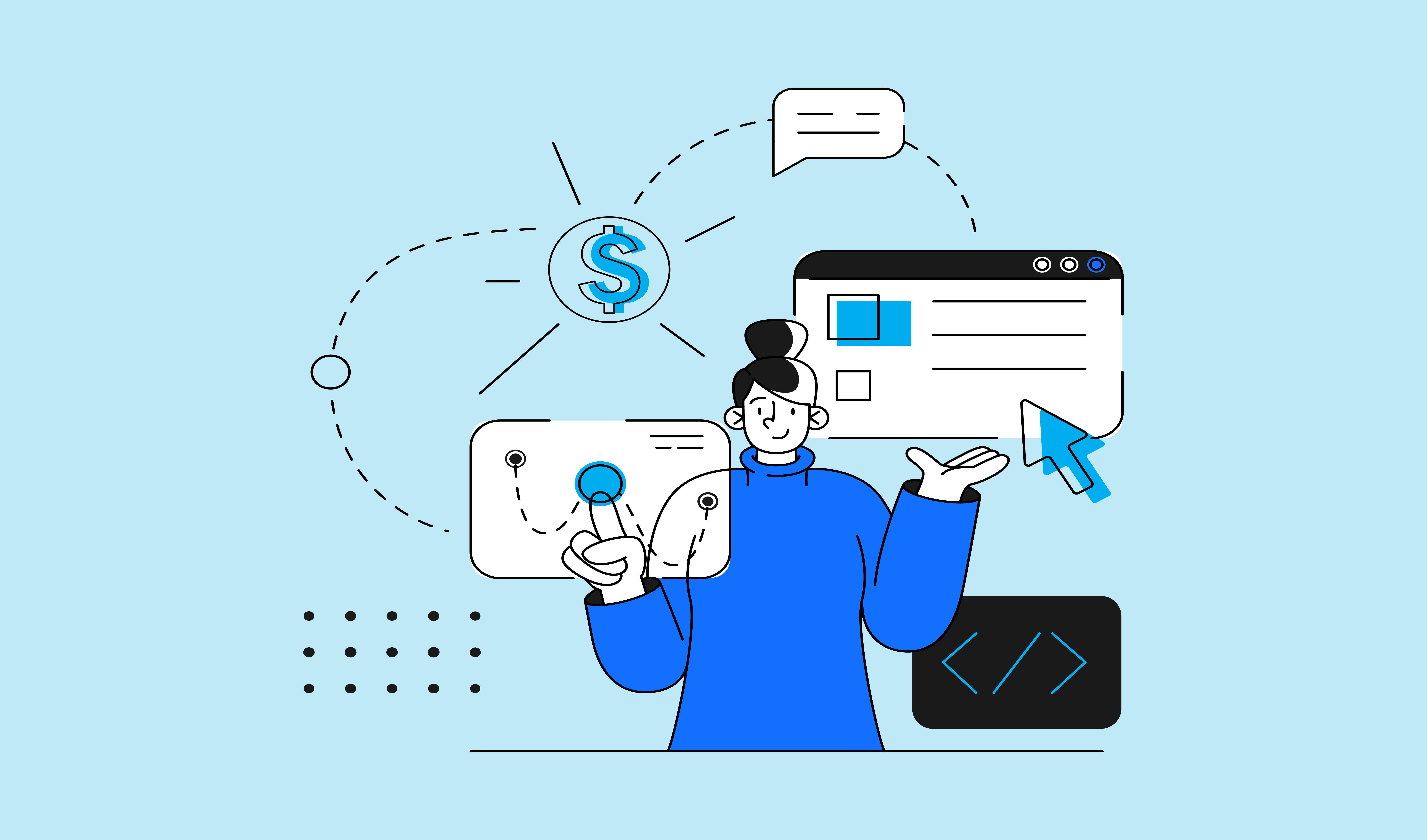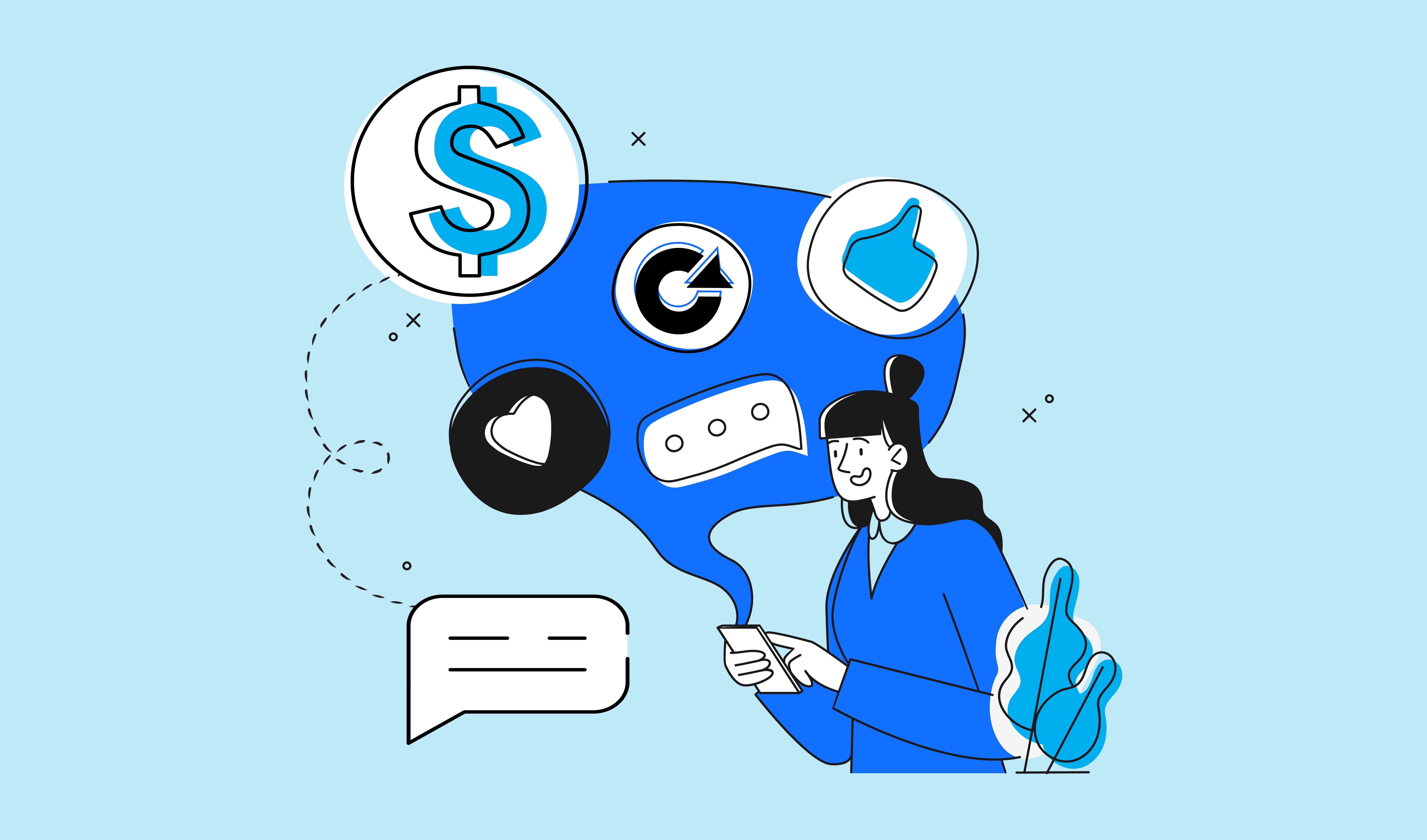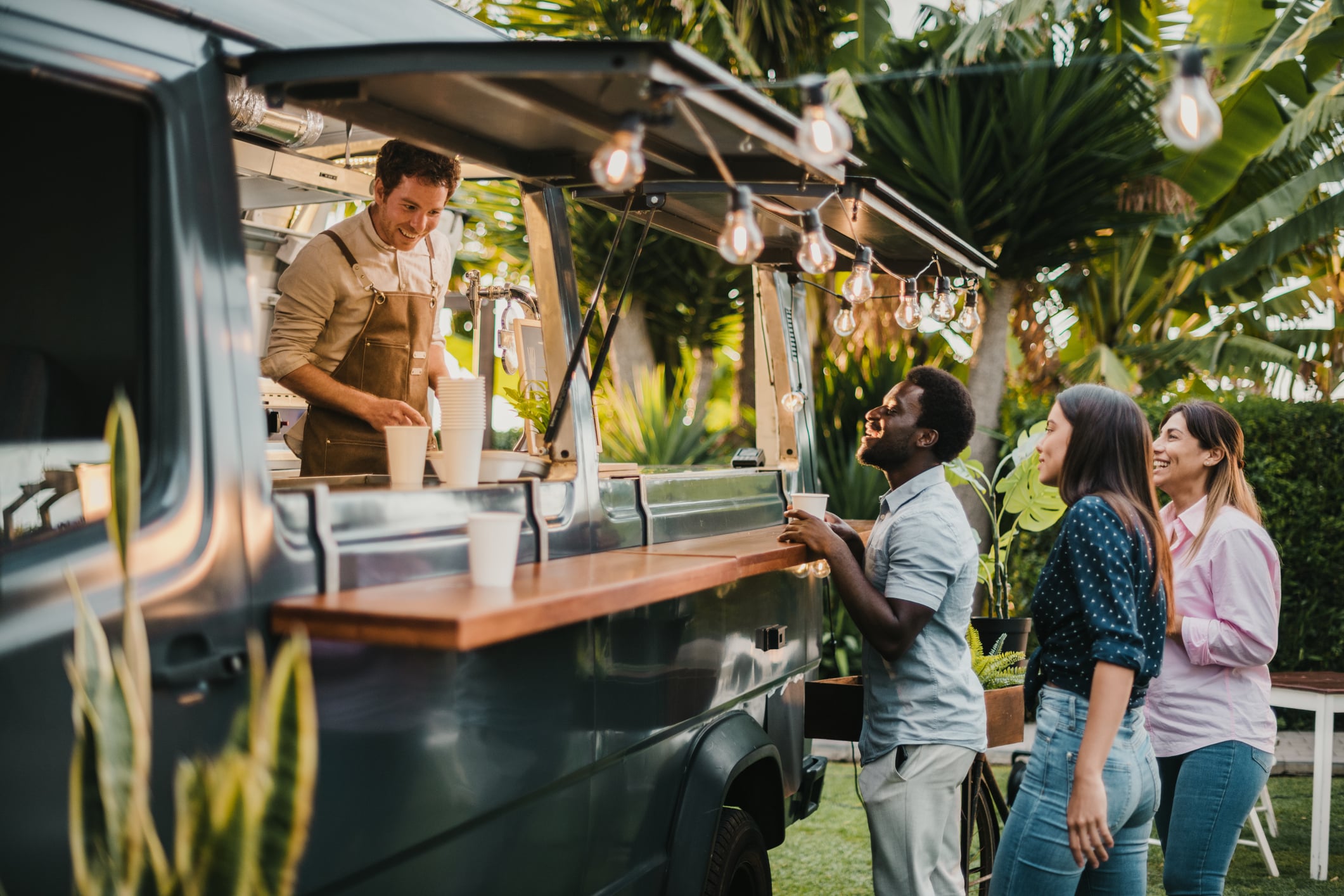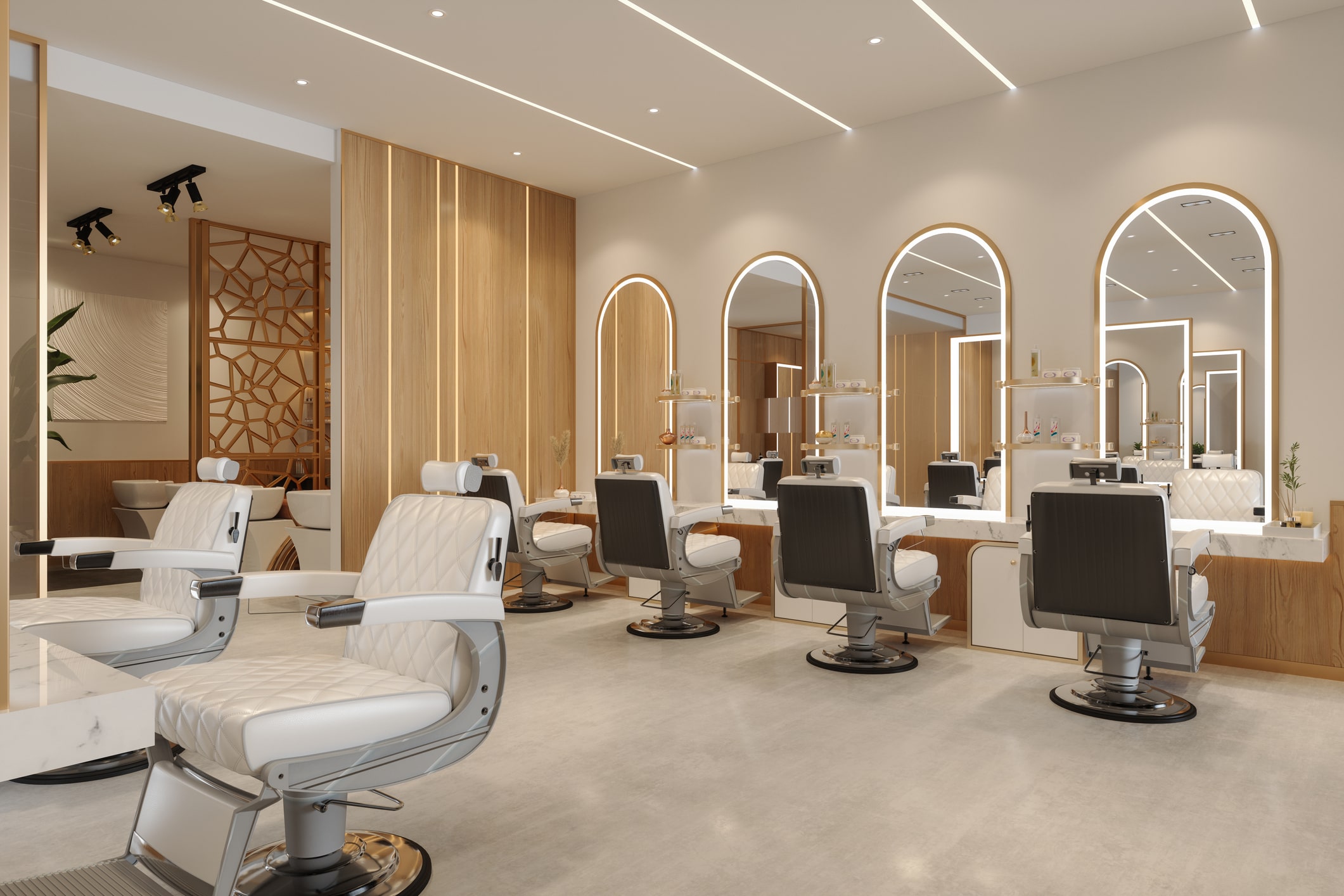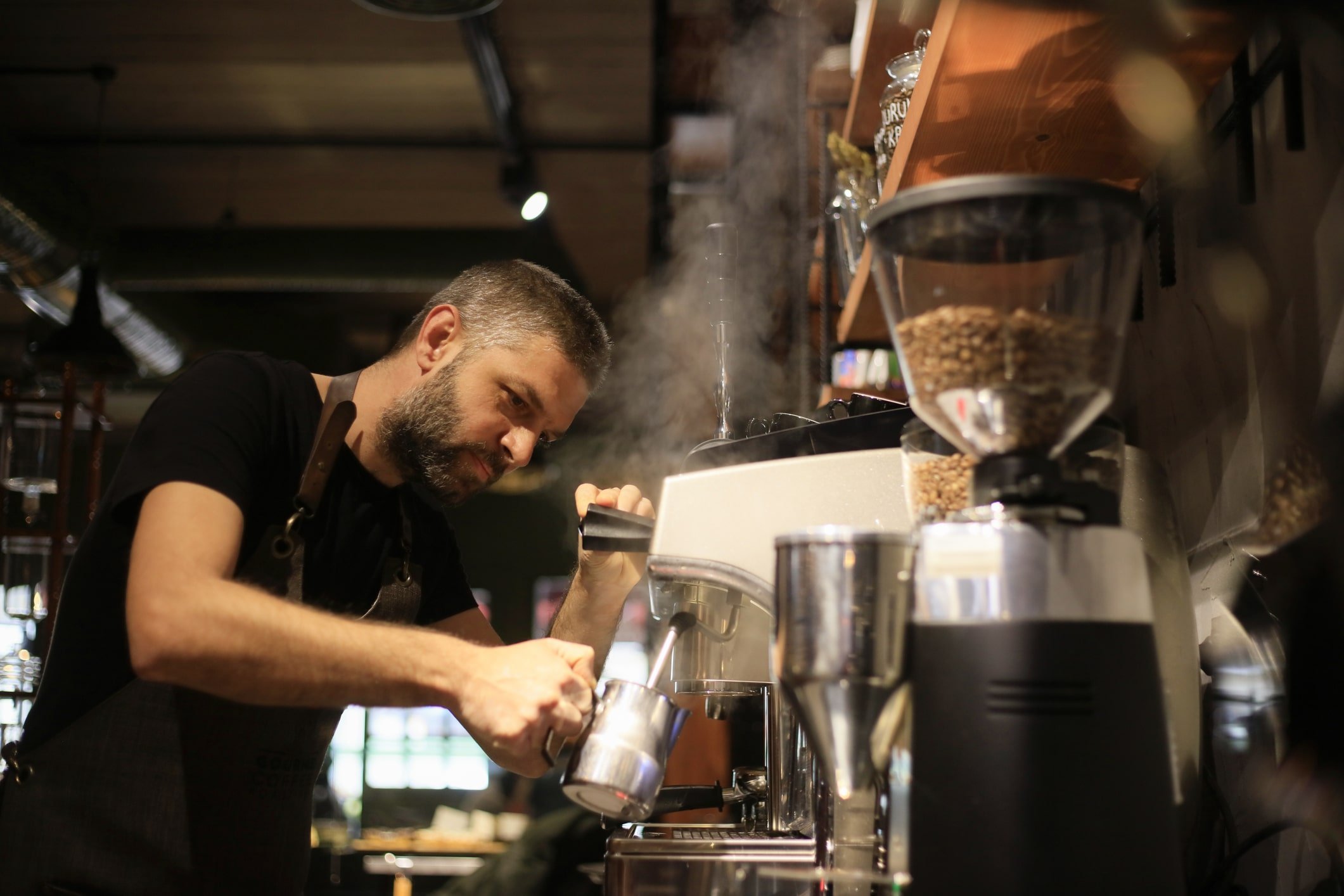
Coffee is one of the world’s most popular beverages. It’s simple to brew, you can drink it in a variety of flavors and styles, and it provides an appreciated caffeine kick when you need it.
Unlike newer industries that lack a proven track record, coffee shops have existed for over 500 years. So if you’re considering going into the coffee biz, know that you’ll have literally thousands of examples you can study when learning how to start a coffee shop business. Over 38,000 coffee shops serve up tasty cups of Joe every day—and that’s just in the U.S.
Just remember, that means it’s a more competitive market, and starting your business may require a greater upfront investment. Keep your options open—especially your equipment leasing options-–and lower your initial costs.
In this guide we break down the basics of how to open your own coffee shop, including your different financing options, how to get started, and everything you need to know to keep your costs low and your business running smoothly.
8 steps to start your own coffee shop business
While it’s a simple concept at heart, there are several moving parts and financial management decisions involved in opening your own coffee shop business. Launching any business takes hard work and careful planning, and a coffee shop is no different. These basic steps show you how to plan and structure your finances and what equipment you need to start a coffee shop off on the right foot.
1. Consider Your Business Plan
Your business goals stem from the “why” of your venture. Take some time to reconnect to these concepts and see which ones align with your purpose.
Whatever your vision, go over your business plan and review the following elements:
- Business description
- Primary goals
- Products and services summary
- Financial forecast
- Target customers
- Marketing plan
- Future market projections
To keep your business going strong, effective strategizing can help you make informed decisions. This is especially true when it’s time to upgrade, expand, or evolve your prospects.
2. Consider day-to-day operations
This includes equipment, supplies, maintenance, and your employees. It’s important to find equipment and staff that align with your company's values and objectives. Every component of your business should benefit from the ins and outs of coffee preparation and how you envision your business, all while contributing to the satisfaction of your customers.
Considering these elements is crucial for a sound financial forecast at every point in your business journey.
3. Get the right inventory and equipment
What equipment do you need to start a coffee shop? The type of equipment and inventory items you need to get started depends on a few factors, including your budget, your business concept, and whether you prepare, keep, store, sanitize, and serve beverages, as well as additional food items. Your business model is one way to determine what shop equipment you need to look into.
For the purpose of this guide, outfitting your shop with the right equipment is the main focus. Consider the brewing methods you’d like to offer and how much counter or preparation space you’ll have for your equipment. Then, make a note of these supplies and equipment that accomplish your business goals.
Equipment you need to start a coffee shop
Coffee brewing methods
- Espresso machine
- Pour-over carafe
- Automatic drip-maker
- Bean grinder
- Industrial blender
- Water filtration method
- Toaster or oven
Storage and preparation
- Refrigerator
- Dishwashers and sanitizers
- Ice machine
- Kettle or electric water heater
- Three-compartment sink
- Measuring equipment
- Thermometers
Beans, bites, and beverages
- High-quality beans
- Milks, including dairy-free options
- Flavor pumps
- Baked goods
Other equipment and Supplies
- Tables and seating
- Serving counter
- Baking equipment
- Bakery display case
- POS system and stand
- Cups, lids, mugs, plates, and straws
- Napkins and napkin holders
- Self-serve sweeteners, condiments, and cream
- Aprons, uniforms, or shirts
- Menu and display board
Purchasing high-quality supplies and equipment for a coffee shop is a worthwhile investment because quality products are less likely to break down over time, and better equipment typically means better coffee.
However, this doesn’t mean you have to invest in all brand-new machines. Used equipment can often work just as well.
For support with coffee shop equipment purchases, it may make sense to look into small business leasing. Clicklease’s affordable equipment leasing makes getting or upgrading what you need to get started easier, leasing up to $25,000. Partnering with an equipment leasing company offers several benefits, including easy payment plans on better equipment to boost your business from the outset and the ability to get started immediately with the equipment.
4. Obtain proper licensing
The state and municipality in which you intend to operate will largely determine where and how to open your own coffee shop. Before you can open your doors and serve customers, you will need to secure the proper permits and licenses. Budgeting for ongoing licensing expenses is crucial for proper financial planning, especially since, unlike equipment leasing, you can’t finance day-to-day operations this way.
In addition to official business and tax registration, your shop needs to be licensed to prepare food and beverages and to comply with restaurant health and safety regulations. This process—and the licensure you need to get started—may differ depending on whether you want to open a new shop, start a franchise, or buy an existing shop.
5. Find the perfect location
The location of your coffee shop is one of the most critical factors for its success. It’s also one of the biggest financial considerations. When searching for spots, keep a list of pros and cons in mind for every space. A location with a lot of foot traffic could bring in more customers, but the rent may be out of your budget. On the other hand, low visibility or proximity to established industry competitors may not be worth lower rent or utility costs.
Ultimately, it’s about balancing what’s most important for your coffee shop with what is practical and feasible. If it’s crucial that you operate in a space that allows for comfortable seating that encourages customers to stay a while, keep that at the top of your must-have list.
However, don’t let a location win you over for its square footage and aesthetics alone. Consider the contract terms, insurance requirements, landlord-imposed regulations, and other factors before you sign any lease agreements.
Additionally, considering using a cart or food truck as your coffee shop location offers cost-cutting advantages. Operating from a mobile location also allows you to move to different areas strategically, targeting events or busy spots with less overhead.
6. Determine a pricing structure
It’s important to offer your customers a product they not only love but one they can afford, too. Finding this balance is the first step in creating a pricing strategy that allows you to be profitable while maintaining fair pricing.
It can be helpful to look at your menu to determine your coffee shop’s star selling points. From well-sourced beans to creative latte specials, build item popularity and ingredient quality into the way you price your products.
7. Create a marketing plan
It isn’t enough to place an open sign in your window and wait for customers to roll in. Branding and ongoing marketing are things you should consider with building out your customer experience and your business’ marketability.
Keep in mind that you don’t have to reinvent the wheel to implement a successful marketing blueprint. Find ways to add your own spin to long-standing strategies common in the coffee shop industry, such as:
- Loyalty programs
- Free samples
- Drink specials
- Free, high-speed wifi
- Discount incentives for reviews
- Creative tip jars
- Happy hour discounts
- Social media campaigns
Establishing a solid marketing strategy can be the bread and butter of your success in your venture's early and later stages. Don’t be afraid to include important investments as part of your company’s value, including exceptional equipment or ingredients, to market to, and draw in, customers.
8. Open your doors
After you’ve spread the word about your coffee shop and everything is in its right place in your space, it’s time to serve your first customers. People will remember the environment of your shop as well as the quality of their service just as much, and sometimes more, than your menu selection or coffee quality. Make it your shop’s mission to keep a friendly, welcoming atmosphere at the forefront of your goals to keep people coming back for more.
Is owning a coffee shop profitable?
If you find the right financing solutions, a coffee shop has the potential to be highly profitable. Solid financing can significantly cut initial start-up costs and help your business thrive down the line.
Coffee is a regular part of millions of mornings. As many as 74% of American adults say they drink a cup of coffee daily, with almost half reporting more than just one cup throughout the day. The demand for coffee is there—your cafe only needs to capitalize on it.
While owning a coffee shop can be a very profitable venture, your shop’s total revenue is dictated by many factors, including:
- Your profit margins
- Your daily customers
- Equipment and supply costs
- Your days and hours of operation
- The size of your business
- Operational costs
There is no one-size-fits-all answer to just how profitable your business can be, but there are smart moves you can make at the outset—especially financial ones. The success of your shop often depends on what you’ve invested into it. The more consistent and dedicated you are in your approach, the more likely you are to see profitability sooner than later.
How much money do I need to start a coffee business?
If you’re wondering how to start a coffee shop business on a budget or how much funding you’ll need to secure ahead of the launch, consider your unique business goals. Startup costs vary by location and other factors, including whether you are expanding an existing location or starting from scratch with a brand-new storefront.
The type of coffee shop you open is the largest determining factor for your initial expenses. According to a widespread small business cost analysis, you can expect to spend anywhere from $1,500 to $25,000 to add a brew bar to an existing shop or:
- $25,000 to $75,000 to set up in an existing bakery or cafe
- $50,000 to $100,000 for a kiosk, mobile coffee cart, or food truck
- $80,000 to $300,000 for a drive-thru shop or cafe with seating
These costs, of course, vary depending on the type of equipment for your coffee shop, your location, and the particulars of your business plan. Starting a coffee shop requires significant upfront investments. That’s why many coffee shop businesses turn to financing for bigger expenses, such as equipment.
Keep in mind that common startup expenses often include:
- Rent and utilities
- Supplies and inventory
- Hiring and training employees
- Coffee shop equipment
- Marketing and promotion
- Insurance and licensing
Open a coffee shop business—the right way
Starting and operating any small business is not for the faint of heart, but with coffee enthusiasm on the rise, the industry is only expected to grow. If you’ve always wanted to serve creative latte concoctions and stellar espresso shots, there is no better time to get started.
Initial expenses are often the biggest hurdle to opening your doors, particularly the specialized equipment coffee shops require. This is where leasing can be a game changer. You can fast-track your business with equipment leasing through Clicklease. Clicklease has helped thousands of small business owners accomplish their goals, and we can help you reach yours, too.
Contact us to get started today.
The content linked to clicklease.com has been compiled from a variety of sources and should not be considered the official position of Clicklease, its Employees or Officers. Data and opinions included are provided for convenience, may contain errors or omissions, and consequently should not be relied upon for making business or investment decisions. Clicklease encourages its site visitors to use the information provided at their own risk, and recommends visitors do their own direct research.
Related Articles
If you know you’re ready to start your business the next step, and arguably one of the most...
If you’ve been dreaming about taking your talent for beauty to the next level and opening your own...

